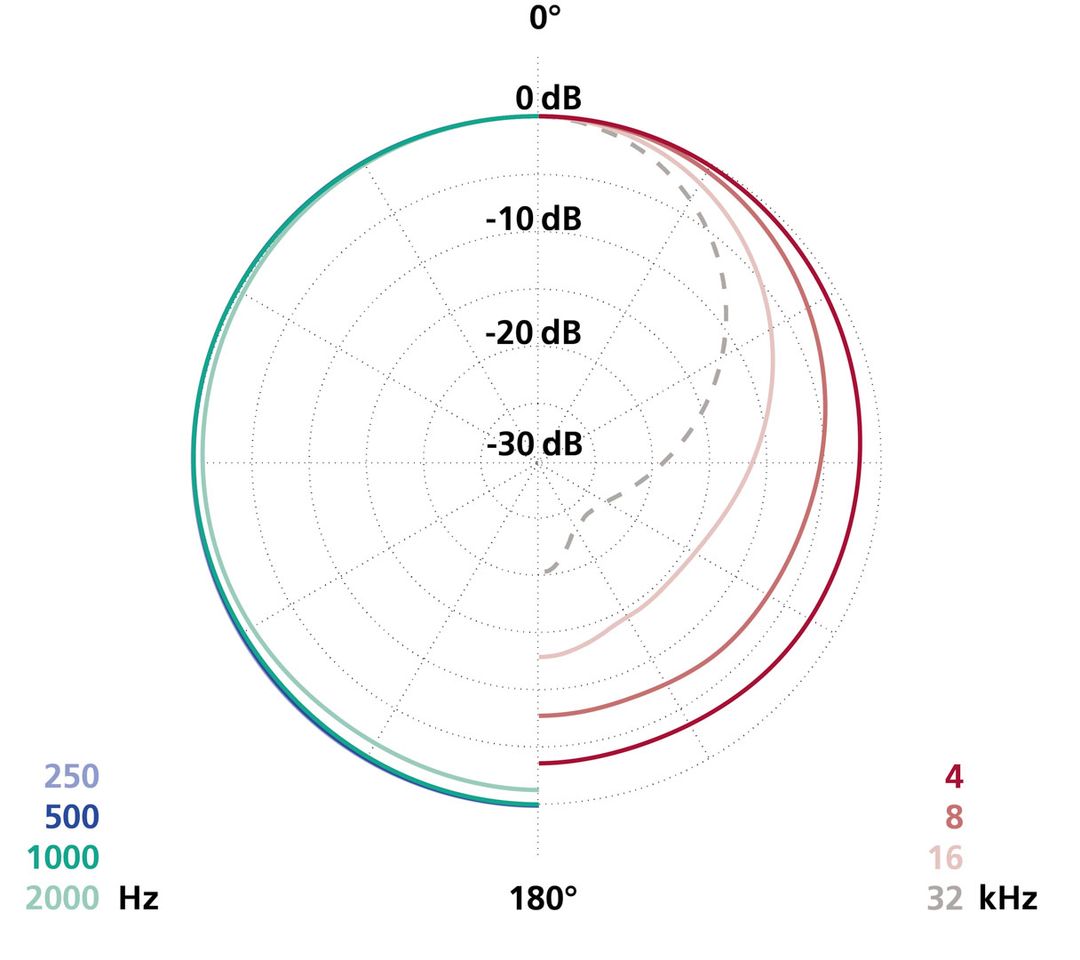The MK 2XS (formerly 3) is designed for placement in a diffuse sound field, i.e. at distances in reverberant environments where the greater portion of arriving sound has already been reflected from various room surfaces. In such placement the integrated frequency response of this capsule is essentially flat; the on-axis high-frequency response elevation shown in the graph below is not heard as such. It is remarkable how well-focused a recording can be made with omnidirectional microphones at such distances, when the microphones have been...
The MK 2XS (formerly 3) is designed for placement in a diffuse sound field, i.e. at distances in reverberant environments where the greater portion of arriving sound has already been reflected from various room surfaces. In such placement the integrated frequency response of this capsule is essentially flat; the on-axis high-frequency response elevation shown in the graph below is not heard as such. It is remarkable how well-focused a recording can be made with omnidirectional microphones at such distances, when the microphones have been designed and placed appropriately.
If this type of microphone is used close to the sound source, the emphasis of high frequencies for on-axis sound incidence would become clearly audible, producing an overly brilliant sonic impression.
Since most recording today is miked more closely than in decades past, capsules such as the MK 2S or MK 2H are a reasonable norm for the majority of spaced-omni and “Decca Tree” applications. But if miking distances more typical of the mono and early stereo era are to be used, a capsule such as the MK 2XS, with its full diffuse-field equalization, may well offer the optimal balance of focus, depth and spaciousness – and the KA 40 accessory spheres can then add a further measure of presence to the sound at such distances, if desired.
The MK 2XS is also often used as an ambient room microphone.



